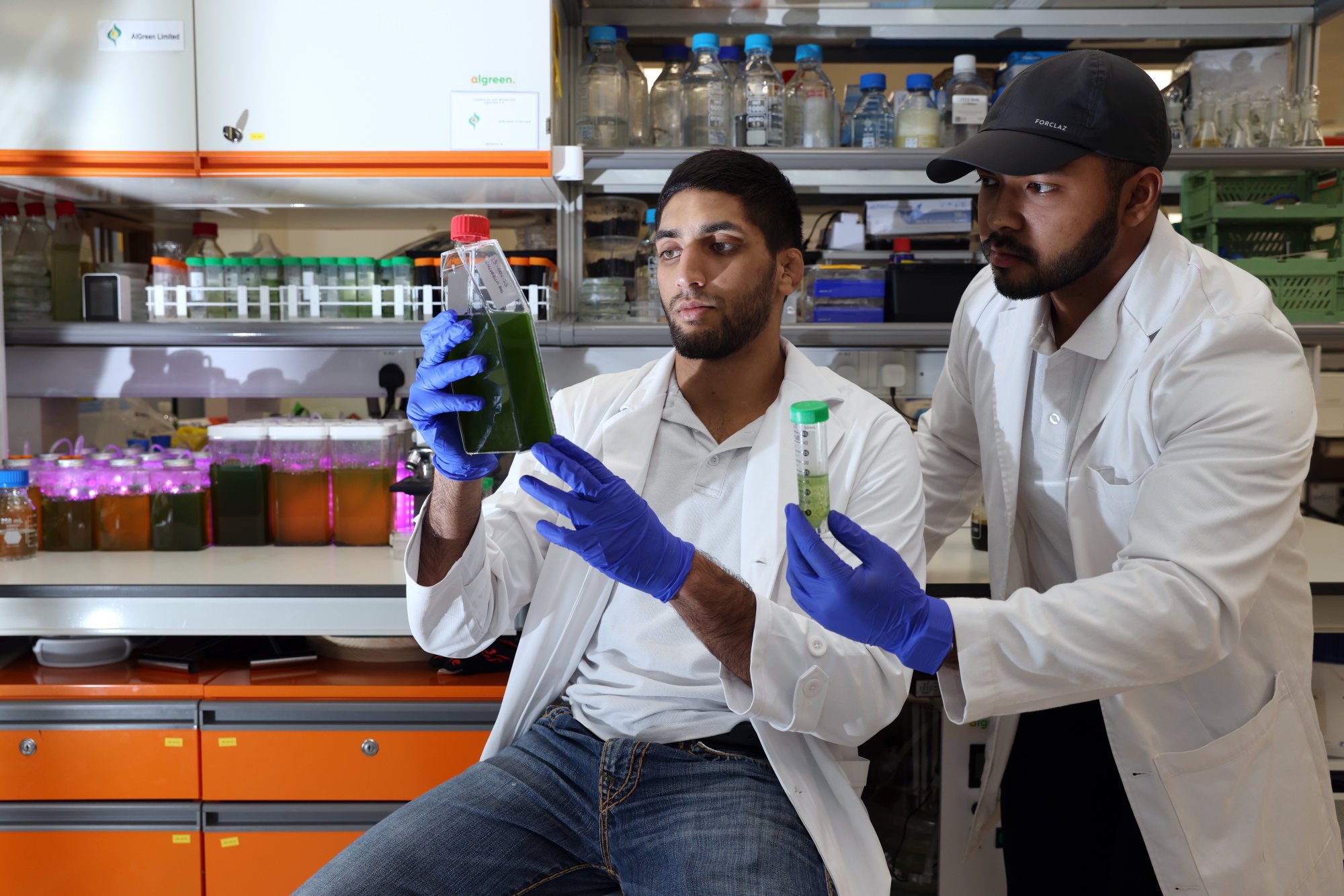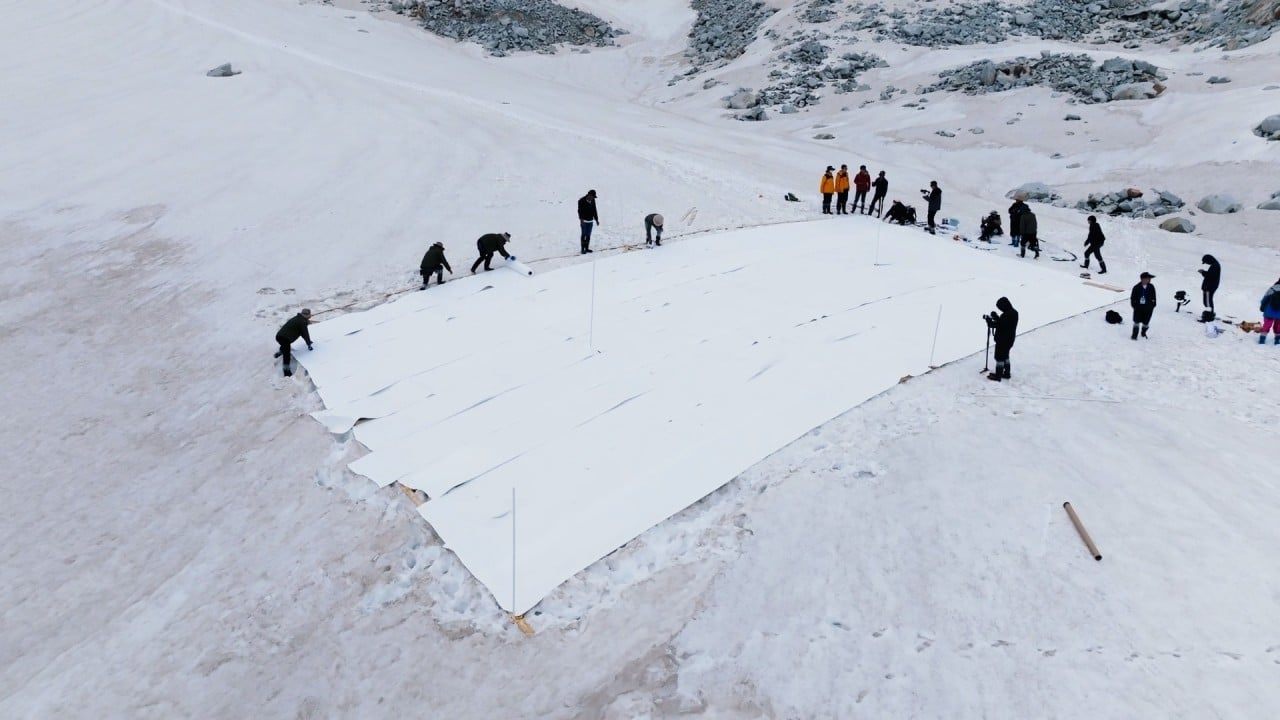Hong Kong biotech graduates come up with ‘microalgae’ solution to capture carbon
[ad_1]
A group of biotechnology graduates from Hong Kong has come up with a novel idea to capture carbon that can help slow down the impact of climate change.
Having come across microalgae and its immense carbon capture storage properties during a class on entrepreneurship in biotechnology in their final year at the Hong Kong University of Science and Technology in 2021, they went on to launch AlGreen.
Now the start-up is seeking to commercialise their solution.
“We have worked hard to design and manufacture scalable products from our laboratory in Hong Kong Science Park,” said Rehaan Lulla, co-founder and chief technology officer. “Now we’re looking at what we can do with the algae itself, and how we can use algae to make commercial products.”

AlGreen was admitted to the HKSTP incubation programme in May 2022. It has received HK$420,000 (US$53,900) in funding after passing three milestone assessments.
Hong Kong start-up comes to the rescue of the world’s endangered corals
Hong Kong start-up comes to the rescue of the world’s endangered corals
The company’s 750ml biocapture system, an algae photobioreactor for air purification, which the team calls “liquid plant”, can absorb 6.3 grams of carbon dioxide per week, 15 times more than a normal houseplant, according to Lulla.
But it needs electricity to power internal lighting and an air pump.
“We’re trying to commercialise certain products, such as our ‘liquid plant’,” said Lulla. “Instead of leaves and a stem, it’s just cells growing in water. It can make for a nice decorative piece, while also absorbing carbon dioxide in an office or at home.”
The prototype sells for HK$49 on their website, but the team is trying to improve the aesthetics of the final version, which they plan to release next year.
“For the product we’re developing, a secondary benefit in a home would actually be air purification,” said Tasin Khan, a senior research analyst at AlGreen and University of Hong Kong graduate.
“[Plants] can take in carbon dioxide and release oxygen, but they cannot purify air. However, our [liquid plant] product enables us to purify the air as well, along with releasing oxygen.”
AlGreen is taking the best of both worlds and providing it to the end-user, Khan added.
The firm’s first product was a microalgae science, technology, engineering, and mathematics education (STEM) kit. Manufactured in-house, it was initially sold to students and families, before it was available in bulk.
“We’ve collaborated with some education companies for summer camps as well as education events at certain schools,” said Lulla.
The STEM microalgae growth and carbon capture kit is priced at HK$349, while a simplified microalgae growth kit sells for HK$299.
These Greater Bay Area start-ups are making decarbonisation pay off
These Greater Bay Area start-ups are making decarbonisation pay off
The bigger plan is not to just sell the kit alone, said Lulla. AlGreen plans to implement their carbon capture and air purification systems for companies as well as public institutions in 2024, he added.
The start-up plans to implement a 1,000-litre scale bioreactor that uses only solar power to operate next year, and is currently applying to various public institutions and reaching out to companies to implement its carbon capture systems.
Six 1,000-litre microalgae bioreactors can absorb a tonne of carbon dioxide per year, Lulla said. The main objective is to generate a steady stream of revenue, implement in-house technology and commercialise products, he added.
“As part of our greater vision to contribute to a circular economy, we are in the middle of registering IP [intellectual property] for our proprietary process for converting microalgae biomass to bio-oil, biochar and bioactive molecules.
“This process will be vital for large-scale carbon sequestration and biofuel production.”
[ad_2]
Source link






